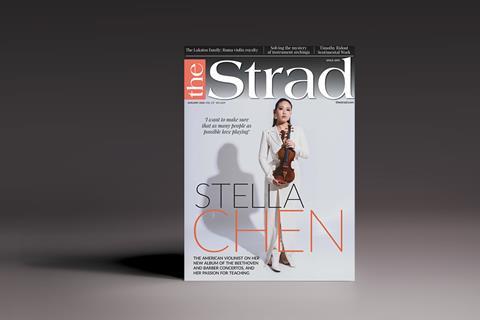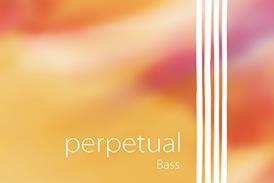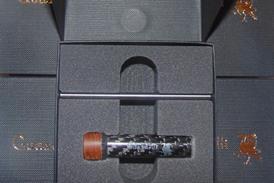- News
- For Subscribers
- Student Hub
- Playing Hub
- Directory
- Lutherie
- Magazine
- Magazine archive
- Whether you're a player, maker, teacher or enthusiast, you'll find ideas and inspiration from leading artists, teachers and luthiers in our archive which features every issue published since January 2010 - available exclusively to subscribers. View the archive.
- Jobs
- Shop
- Podcast
- Contact us
- Subscribe
- School Subscription
- Competitions
- Reviews
- Debate
- Artists
- Accessories
Sentimental Work: Jennifer Pike

For the British violinist, Szymanowski’s Violin Sonata in D minor brings back fond memories of old holidays, family reunions and a three-concert marathon in 2017
I knew about Karol Szymanowski from a very young age, before I’d heard any of his works. I used to walk in the Tatra Mountains of Poland with my parents on holiday, and we’d often walk past the Villa Atma in Zakopane where he wrote many of his later works. The way my grandparents would explain who he was and his importance to Polish culture gave him a sort of mystical, magical quality in my young mind. Then, when I was ten years old, I heard the Violin Sonata in D minor at the Lake District Summer Music course. The immediacy of his writing struck me straight away, a kind of searing quality that I’ve found in so much Polish music since. There’s a sense of real depth and intensity, as well as some impassioned, heart-on-sleeve storytelling.
I didn’t start studying the Sonata until I was in my late teens, and then worked on it in earnest in my early twenties. It’s a hard piece to learn, although not technically difficult like some of Szymanowski’s later works. It’s more about finding the right colours and the fingerings to bring out the lyricism: it’s a real challenge to find how to vary the long, long lines, and there’s a huge amount of contrast, like dramatic mountain peaks from pianissimo to dolce, molto tranquillo and finally an exciting tarantella that leaves me exhausted by the end! Every time I play it there’s something new to discover, and I’m fascinated by the expressionistic colour coming out of this heroic, Romantic sound world. I’ve heard people call the Sonata a juvenile work, partly because of that Wagnerian tone and the sheer brilliance of the later works. But I see it as a very forward-looking work, and I think it’s easy to miss some of its brilliant qualities…
Already subscribed? Please sign in
Continue reading this article and explore hundreds more…




























